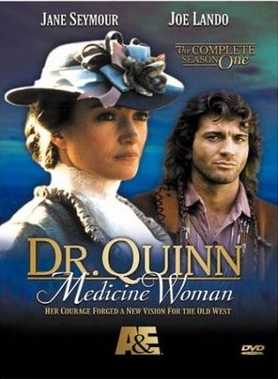War is heaven; Life today is complex. The studios' solution: the simplistic epic.
By Manohla Dargis
The whitewash in "Cold Mountain" is remarkable even by Hollywood standards, but it's typical of the industry's cultural conservatism, which dictates that no potential audience member be offended by unpleasant truths. If Minghella included as many black characters in his story as Frazier put in his, the director would have to deal with the fact that his white lovers are racist. Products of their very specific time and place, Frazier's white Southerners don't transcend their historical context because such a thing would be impossible. By contrast, Minghella advances the canard that war is reducible to individual struggle without regard to ideology, power or the political violence that human beings are forced to perpetuate on behalf of power. In Hollywood, every hero is innocent, especially if a star plays him.
The idea that Hollywood is a hotbed of liberalism is a convenient smokescreen for conservative critics who are likely more enraged that Sony offers health benefits to its gay employees' domestic partners than by the stabs at "political correctness" in the Sony release "The Missing." The liberal rap is also a nice illusion for those Hollywood movers and shakers who don't see a contradiction between, say, raising money for Bill Clinton and selling entertaining violence and depoliticized warfare in their movies. Indeed, the feminized image of Clinton--who didn't fight in Vietnam, didn't inhale and has a wife who wears pantsuits--and the crisis in liberalism that defined his presidency and returned conservatives to power, may actually have inspired a kind of butch backlash in Hollywood. Who's afraid of war? Not the Industry.
Today, Hollywood moviemakers are waging war against one another in a struggle for box-office domination--they've become the ultimate weekend warriors. The casualties of this battle include the multitudes of dead characters strewn across screens, but there are other more important losses being incurred. Notwithstanding "Cold Mountain," war stories mean fewer juicy roles for women in an industry already dominated by men. And because Hollywood history is usually told from the point of view of the vanquishers, the Great Man theory of history writ cinematically, there's no need for the "balanced" racial casting that constitutes Hollywood's idea of affirmative action. Even in "The Last Samurai," a studio film filled with an unusual number of nonwhite actors, the last man standing isn't named Ken Watanabe.
We see this all the time in Native-themed productions. In movies such as Bury My Heart at Wounded Knee...TV shows such as Dr. Quinn, Medicine Woman...books such as Karl May's Winnetou series...games such as King Philip's War...etc. They give us only a small slice of history, denuded of any context. Even when the conflict is good Indians vs. bad white men, people don't learn the whole story.
Consider a typical Dr. Quinn plot: "Bad men threaten Indians; Dr. Quinn and Sully stop them." Sounds good, but meanwhile, long-term trends are ending the Indians' way of life. The government continues to break treaties, starve Indians into submission, corral them onto reservations, force them to start farming, and convert them to Christianity.
None of this makes it into the episode because it would be too upsetting. It would overturn our noble self-image as heroes and saints. So viewers learn that bad men were responsible for everything, that good men opposed them, that good men helped the Indians, and that good triumphed over bad in the end. It's superficially an anti-colonialist story, but it winds up minimizing and excusing America's crimes.
"Cultural conservatism" = racism
This "cultural conservatism" is a form of racism. It's not the harsh kind where a person dislikes minorities and thinks they're inferior. It's the gentle kind where a person says, "I'm not familiar with minorities and their stories. Maybe they're good and maybe they're not; I just don't know. I prefer to stay within my comfort zone."
Thus we get the Quileute werewolves in Twilight. As one professor described Jacob Black:
For the sake of comparison, the nonracist version of the "gentle" statement above would be: "I'm not familiar with minorities and their stories. But people are the same everywhere, so I'm not worried. Our audiences are 30% minority, so we need more minority characters and stories. Find me people who can tell these stories so we can tap into this market segment. We should be making money from it rather than ignoring it."
And once again note: No one is claiming Hollywood whitewashed Cold Mountain, The Last Samurai, or The Last Airbender for economic reasons. The producers may be thinking about economics, but they're talking about artistic license. They're claiming that only white characters and stories "transcend history," which is essentially a racist position.
For more on the subject, see Indians Hold Steady at 0.3% and Roscoe Pond or a Big-Name Actor?.


5 comments:
Yet another insightful piece... I'll have to start looking for the phrase 'not a history lesson' because I feel like I've definitely heard that one before.
"A typical Dr. Quinn plot is an example. "Bad men threaten Indians; Dr. Quinn and Sully stop them." Meanwhile, the government continues to break treaties, starve Indians into submission, corral them onto reservations, force them to start farming, and convert them to Christianity."
Actually, the show did deal with most of the "meanwhile" also.
I agree with the notion that "Conservatism" in politics is akin to a form of White Supremacy or racism.
~GENO~
The question is which episodes of Dr. Quinn are "typical." I'll let you know when I finish watching the series.
The episodes about the annihilation/expulsion of Cloud Dancing's tribe might not be typical, but they stood out.
Post a Comment